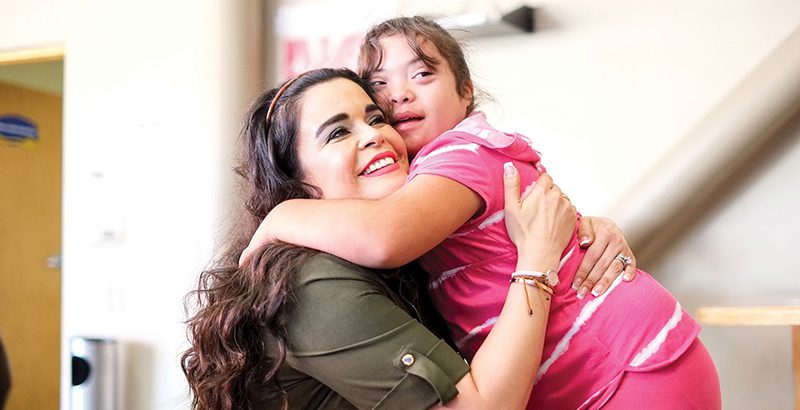Table of Contents
Special Needs Homeschooling In the landscape of education, Special Needs Homeschooling has emerged as a dynamic and personalized approach to learning that caters specifically to the unique needs of students with diverse abilities and challenges. This educational pathway offers families flexibility, individualized instruction, and a supportive environment tailored to the strengths and requirements of each child.

Understanding Special Needs
Special Needs Homeschooling encompass a spectrum of conditions and challenges that may affect a child’s learning and development. These can range from learning disabilities and neurodevelopmental disorders to physical disabilities and behavioral difficulties. Each child presents a distinct profile of strengths and areas for growth, necessitating educational approaches that are flexible and accommodating.
The Rise of Homeschooling
The popularity of Homeschooling has grown significantly in recent years, driven by various factors such as dissatisfaction with traditional schooling, desire for personalized education, religious or philosophical beliefs, and in the case of Special Needs Homeschooling, the need for tailored educational approaches that traditional schools may not adequately provide.
Tailoring Education to Individual Needs
Special Needs Homeschooling revolves around the principle of individualized education plans (IEPs) that are crafted based on thorough assessments of each child’s academic, developmental, and therapeutic needs. These plans serve as roadmaps for curriculum development, instructional methods, and therapeutic interventions that support the child’s overall growth and learning journey.
Flexible Learning Environments
One of the key advantages of Special Needs Homeschooling is the ability to create a flexible learning environment that adapts to the child’s pace and preferences. Whether it’s modifying daily routines, adjusting teaching methods, or incorporating sensory-friendly spaces, homeschooling allows for customization that enhances the child’s comfort and engagement in learning.
Multi-sensory Approaches
Educators and parents in Special Needs Homeschooling often employ multi-sensory teaching techniques to facilitate learning. These approaches integrate visual, auditory, tactile, and kinesthetic elements to reinforce concepts and promote better retention. For example, using manipulatives for math, incorporating music and movement for literacy, or sensory bins for science experiments can make learning more interactive and enjoyable.
Incorporating Therapeutic Interventions
Therapeutic interventions are integral to Special Needs Homeschooling, addressing various aspects of a child’s development such as speech and language skills, fine and gross motor skills, social skills, and emotional regulation. Families may collaborate with therapists and specialists to incorporate therapies seamlessly into the homeschooling curriculum, ensuring holistic support for the child’s needs.
Individualized Pace and Progress
In a homeschooling setting, children can progress at their own pace without the pressure of keeping up with peers or rigid timelines. This individualized approach allows for mastery of concepts before moving on to new material, fostering confidence and a deeper understanding of subjects.
Supportive Learning Communities
Despite being home-based, Special Needs Homeschooling encourages participation in supportive learning communities. Families connect with other homeschooling families through co-ops, support groups, online forums, and community activities tailored for children with special needs. These networks provide opportunities for socialization, shared resources, and emotional support for both children and parents.
Embracing Technology and Resources
Advancements in technology have revolutionized Special Needs Homeschooling, offering a wealth of resources and tools to support learning. Educational apps, assistive technology devices, interactive online programs, and virtual learning platforms provide accessible and engaging ways to enhance educational experiences and cater to diverse learning styles.
Parental Involvement and Advocacy
Special Needs Homeschooling relies heavily on parental involvement and advocacy. Parents act as primary educators, learning coaches, and advocates for their child’s educational journey. They collaborate with educators, therapists, and specialists to implement effective strategies, monitor progress, and adjust plans as needed to ensure their child’s success and well-being.
Celebrating Milestones and Achievements
Every milestone achieved in Special Needs Homeschooling is a testament to the dedication and collaborative efforts of parents and educators. Whether it’s mastering a new skill, achieving academic goals, or making strides in social development, each accomplishment is celebrated as a significant step forward in the child’s educational and personal growth.
Looking Ahead: Challenges and Future Directions
While Special Needs Homeschooling offers numerous benefits, it also presents challenges such as balancing educational responsibilities with caregiving, accessing specialized resources, and ensuring social opportunities for children. Moving forward, continued advocacy for homeschooling rights, expanding educational resources, and fostering inclusive communities will shape the future of Special Needs Homeschooling.
Special Needs Homeschooling
Special Needs Homeschooling exemplifies a personalized and holistic approach to education, tailored to meet the unique needs of children with diverse abilities and challenges. By embracing flexibility, individualized instruction, therapeutic interventions, and supportive learning communities, homeschooling empowers families to provide a nurturing environment where children can thrive academically, socially, and emotionally. As we navigate the evolving landscape of education, Special Needs Homeschooling continues to redefine educational norms, inspire innovation, and pave the way for inclusive and empowering educational experiences for all children.





More Stories
How Special Needs Advocates Empower Families
Why Special Needs Preschools Are Essential for Growth
Top Special Education Resources to Enhance Instruction